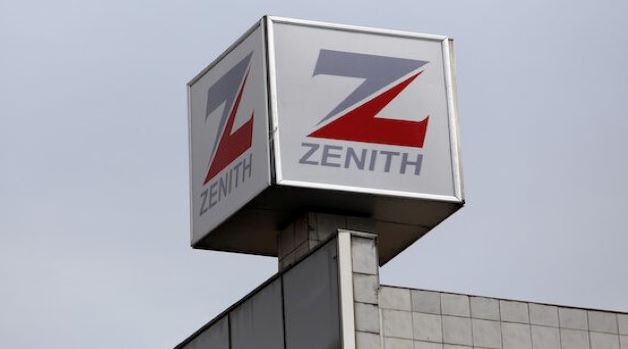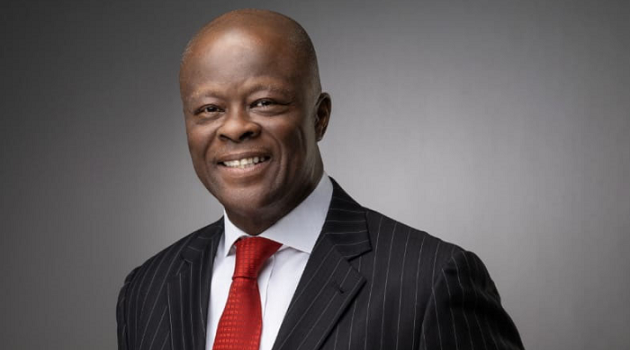E-Financial
Zenith Bank Emerges as Nigeria’s Tier-1 Capital Leader for the 15th Consecutive Year @2024 Top 1000 World Banks’ Ranking

Zenith Bank Plc for fifteenth consecutive year has retained its position as the Number One Bank in Nigeria by Tier-1 Capital in the 2024 Top 1000 World Banks’ Rankings, published by The Banker Magazine.

This ranking places Zenith Bank Plc as the 565th Bank globally with a Tier-1 Capital of $2.01 billion. The rankings, published in the July 2024 edition of The Banker Magazine of the Financial Times Group, United Kingdom, recognise Zenith Bank’s continued financial strength and stability.
They are based on the 2023 year-end Tier-1 capital of banks globally and remain the primary source for global bank financials used by most international organisations in their assessments of banks.
Tier-1 Capital describes capital adequacy, the core measure of a bank’s financial strength from a regulator’s perspective. According to the ranking, Tier-1 Capital, as defined by the latest Bank for International Settlements (BIS) guidelines, includes loss-absorbing capital, i.e., common stock, disclosed reserves, retained earnings, and minority interests in the equity of subsidiaries that are less than wholly owned. A strong Tier-1 capital ratio boosts investor and depositor confidence, indicating the Bank is well-capitalised and financially stable.
Commenting on this achievement, the Group Managing Director/CEO of Zenith Bank Plc, Dame (Dr.) Adaora Umeoji, OON, said, “We are deeply honoured to be recognised as the Number One Bank in Nigeria by Tier-1 Capital for the fifteenth consecutive year.
“This recognition is a testament to our strategic focus on sustainable growth, innovation, and customer satisfaction. It also emphasises our resilience and strength in navigating the ever-evolving financial landscape.
“Our dedicated team of professionals has remained steadfast in ensuring that we maintain our position at the forefront of the banking industry.” She extended her profound and sincere appreciation to the Founder and Chairman, Dr. Jim Ovia, CFR, whose visionary and transformative leadership has played a pivotal role in cultivating a resilient and thriving establishment.
“She also expressed her deep appreciation for the board’s insightful governance, the staff’s relentless dedication, and the unwavering loyalty of the bank’s esteemed customers to the Zenith brand.
Zenith Bank’s financial performance for the year was driven by a remarkable triple-digit growth of 125% in gross earnings, from N945.6 billion reported in 2022 to N2.132 trillion in 2023.
This growth led to an improved market share in both the retail and corporate segments despite a persistently challenging macroeconomic environment. The increase in gross earnings was primarily due to growth in interest and non-interest income. Interest income growth was attributed to the increase in the size of risk assets and their effective repricing, while non-interest income was driven by significant trading gains and gains from the revaluation of foreign currencies.
Zenith Bank recently commenced recapitalisation efforts with the conclusion of its Capital Markets Day held on 11th July 2024. It aims to raise the least amount of capital amongst its peers at N230 billion, considering it already maintains a robust capital base of N270.7 billion.
The Bank remains dedicated to supporting the growth of the Nigerian economy and providing its numerous customers with innovative and efficient banking solutions.
Zenith Bank’s track record of excellent performance has continued to earn the brand numerous awards, with these latest accolades coming on the heels of several recognitions. These include being recognised as the Number One Bank in Nigeria by Tier-1 Capital for the fourteenth consecutive year in the 2023 Top 1000 World Banks Ranking, published by The Banker Magazine.
The Bank was also awarded the Bank of the Year (Nigeria) in The Banker’s Bank of the Year Awards for 2020 and 2022; and Most Sustainable Bank, Nigeria in the International Banker 2024 Banking Awards.
Further recognitions include Best Bank in Nigeria for three consecutive years from 2020 to 2022 in the Global Finance World’s Best Banks Awards and Best Commercial Bank, Nigeria for three consecutive years from 2021 to 2023 in the World Finance Banking Awards.
Additionally, Zenith Bank has been acknowledged as the Best Corporate Governance Bank, Nigeria, in the World Finance Corporate Governance Awards for 2022 and 2023, and ‘Best in Corporate Governance’ Financial Services’ Africa for four consecutive years from 2020 to 2023 by the Ethical Boardroom.
The Bank’s commitment to excellence saw it being named the Most Valuable Banking Brand in Nigeria in the Banker Magazine Top 500 Banking Brands for 2020 and 2021, and Retail Bank of the Year for three consecutive years from 2020 to 2022 at the BusinessDay Banks and Other Financial Institutions (BAFI) Awards.
The Bank also received the accolades of Most Sustainable Bank, Nigeria, in the International Banker 2023 Banking Awards, Best Commercial Bank, Nigeria and Best Innovation in Retail Banking, Nigeria, in the International Banker 2022 Banking Awards.
Zenith Bank was named Bank of the Decade (People’s Choice) at the ThisDay Awards 2020, Bank of the Year 2021 by Champion Newspaper, Bank of the Year 2022 by New Telegraph Newspaper, and Most Responsible Organisation in Africa 2021 by SERAS Awards.
E-Financial
Heritage Bank Depositors Seek National Assembly’s Help to Recover Trapped Funds

Depositors of Heritage Bank with deposits exceeding N5 million have appealed to the National Assembly to intervene and assist in the resolution of the bank’s license by the Central Bank of Nigeria (CBN).

The depositors claimed that the revocation has left them in financial distress, with their livelihoods and businesses hanging in the balance.
In a statement, the depositors expressed frustration that despite previous assurances from the CBN that the bank was not in distress, they have been unable to access their funds.
The situation, according to them, has led to widespread economic hardship with businesses shutting down, life savings crumbling, and daily expenses coming to a standstill.
The statement reads, “Some depositors have died from heart attacks, while others are hospitalized. We are at a loss, and our families are suffering.
“We are perplexed by the action exhibited by the CBN after Unity Bank merged with Providus Bank, which ensured a smooth transition of depositors. We are aware that First Bank was paid N460b of its deposits in Heritage Bank before its liquidation. Why should we be treated differently, subjected to an everlasting process to recover our funds from the sale of Heritage Bank’s properties?
“We plead that you intervene by advising CBN to pay all depositors in full without further delay. Advise that a few other banks absorb the depositors while ensuring a smooth transition as was done in the case of Unity Bank and Providus Bank.
“Utilize Heritage Bank’s reserve ratio to settle depositor’s claims. Treat depositors equally as was done with First Bank and verify NDIC’s claim of paying the insured sum to 85% of depositors and ensure prompt payment to all eligible depositors.”
E-Financial
Zumax Files N4.1Bn Suit against CBN over ‘Fraudulent’ Receivership

Zumax Nigeria Limited, an oil services company, has filed a N4.1 billion lawsuit against the Central Bank of Nigeria (CBN), alleging gross negligence and complicity in what it calls a fraudulent receivership imposed by the apex bank.

In the case, which is before the Federal High Court, Lagos, Zumax claimed that the CBN failed in its statutory duty to supervise banks and protect customers’ interests.
At the hearing of the matter on Tuesday before Justice Akintoye Aluko, Chief Wole Olanipekun (SAN) told the court that the Plaintiff (Zumax) had an application dated February 20, 2025, asking the court to hear the application.
He urged the court to allow him to move the application as the defendant had responded.
Olanipekun also told the court that the Plaintiff and defendant’s preliminary objections can be consolidated and heard together.
He stated that the priority of which application to be heard first shouldn’t arise as the Plaintiff has not opposed the hearing of CBN’s preliminary objection.
But Adeleke Agboola (SAN), counsel, counsel, told the court that the defendant has a preliminary objection in the suit, which commenced as a writ of summons challenging the jurisdiction of the court.
He argued that CBN filed its notice of preliminary objection within time and that the Plaintiff has responded to it.
Agboola said: “This preliminary objection has priority over any other applications. The Plaintiff’s application is not meritorious.
“There is no suggestion by the claimant that we did not file within time. We are saying that this court does not have the jurisdiction to hear this matter. I urge your lordship to allow us to argue this matter.
“There is no doubt that preliminary objection takes precedence; it says it must be heard first, and determining our objection is very serious; we have complied strictly by the rules.
“We urge this court to hear the preliminary objection and dismiss the Plaintiff’s application.”
In his response, Olanipekun said: “My learned friend said the application we filed is not meritorious. It is the court that can make any pronouncement on that.
“My lord, even when we talk of being tidy, we are not saying the court should not hear his preliminary objection. He is now the one saying that our application should not be heard.
“The court has to determine whether the objection has to be heard first or the Plaintiff’s application dated February 20, 2025, has to be heard first.
“It’s no longer the law; in fact, it has never been the law that when there is a preliminary objection, the court will say let’s take it first. We urge your lordship to take our application that has not been contested by the defendant.”
After listening to the submissions and arguments of both parties, Justice Aluko adjourned the case till April 22, 2025, for ruling on which application to hear first.
According to court documents, Zumax had and maintained its account with the defunct IMB International Bank Plc., which, under several mergers and consolidations of banks, ultimately fused into the much larger banking institution known as First City Monument Bank (FCMB).
The Plaintiff said it obtained a facility from IMB International Bank, an overdraft facility of N50m, which was later increased to N200m in/or at the first half of 1998.
However, the bank allegedly inflated the company’s debt and, by December 6, 2002, claimed it had risen to N465.6 million, the claim which was vehemently disputed by Zumax.
Zumax contends that FCMB, under its former Managing Director Edwin Chinye, took control of its foreign currency earnings held in a JP Morgan Bank account through its sister company, Redsear Limited.
According to the plaintiff, the Bank’s Managing Director not only insisted upon and got shares in Redsears Limited and a directorship of that company as a condition precedent for the loan, he also allegedly inserted himself as the lone signatory for the company’s bank account with JP Morgan Bank.
The plaintiff further alleged that “the bank misappropriated $ 4 million from this account, a shortfall discovered during an audit.
“Rather than addressing the dispute, FCMB appointed receivers to take over Zumax’s operations, a move the company described as fraudulent.
“The receivership, which lasted from December 2002 until 2022, led to severe financial losses, including the collapse of Zumax’s business and the loss of contracts with multinational oil companies such as Chevron.
“The company claimed it was unable to operate for two decades due to the receivership, which was based on what it describes as an entirely fabricated debt.
“Zumax further alleged that despite repeated petitions, the CBN failed to investigate FCMB’s actions or intervene to prevent the alleged financial mismanagement.
“The company maintained that a 2007 CBN report confirmed that it had paid over N547 million to FCMB, proving it was never in debt to the bank.
“Additionally, the Court of Appeal ruled in December 2021 that the consent judgment upon which the receivership was based was fraudulent and should be set aside.”
The plaintiff is seeking a court declaration that the CBN was negligent in its duty to regulate Nigerian banks.
It’s also asking for special damages amounting to $ 41 million, including lost income and asset depreciation; general damages of N2 billion, exemplary damages of N2 billion, and legal costs amounting to N100 million.
But the CBN’s preliminary objection is challenging the jurisdiction of the Court to hear the matter.
E-Financial
FG to Harmonise Fiscal Data Across MDAs

Efforts to harmonise fiscal data across government institutions have commenced in earnest, with Mr Wale Edun, minister of Finance and Coordinating Minister of the Economy, spearheading the meeting to achieve the mission.

Mr Wale Edun, minister of Finance and Coordinating Minister of the Economy,
Key stakeholders, including the Minister of State for Finance, Dr Doris Uzoka-Anite; the Accountant General of the Federation, Shamsedeen Babatunde Ogunjimi, and the Director General of the Budget Office, Mr Tanimu Yakubu, met on Monday with Edun, a statement issued by Director of Information in the ministry Mohammed Manga, said.
The said discussions centered on discrepancies in fiscal data across government institutions, which have affected Nigeria’s credit ratings and borrowing capacity.
The Minister emphasised the need for synergy between agencies such as the Budget Office, the Accountant General’s Office, and the Debt Management Office (DMO).
“Delivering accurate and comprehensive fiscal data is critical to economic stability and investor confidence,” Edun said Attendees agreed on the establishment of a Fiscal Data Coordination Framework, which includes a main committee, a subcommittee, and technical teams dedicated to standardising fiscal reporting methodologies and economic assumptions.
The Minister affirmed that Nigeria must take ownership of its fiscal data credibility, reducing dependence on external institutions.
The meeting concluded with a firm commitment to implementing the framework, reinforcing transparency, strengthening investor confidence, and enhancing Nigeria’s economic outlook.

 News2 days ago
News2 days agoPolice Arrest 4 Bank Staff over Alleged ₦270m Fraud, Money Laundering

 E-Financial2 days ago
E-Financial2 days agoUBA Grows Profit to ₦804Bn, Declares N3 Kobo Final Dividend

 E-Business2 days ago
E-Business2 days agoNIMC to Prosecute Nigerians Printing ‘NIN Cards’, Says Only Slip is Legal

 E-Business2 days ago
E-Business2 days agoUnleashing Nigeria’s Business Potential: The Cloud as Catalyst for Growth

 Telecom2 days ago
Telecom2 days agoOpen Access Fabrics Set to Drive Connectivity to Achieve a Digital Economy

 General News2 days ago
General News2 days agoAuthorities Seize 1842 Devices in African-Wide Cybercrime Crackdown

 Telecom2 days ago
Telecom2 days agoMTN Nigeria and Pan-Atlantic University Invite Media Practitioners for 4th Media Innovation Programme

 E-Financial2 days ago
E-Financial2 days agoEnza Raises $6.75m Seed Funding to Boost Embedded Payment Solutions Across Africa























